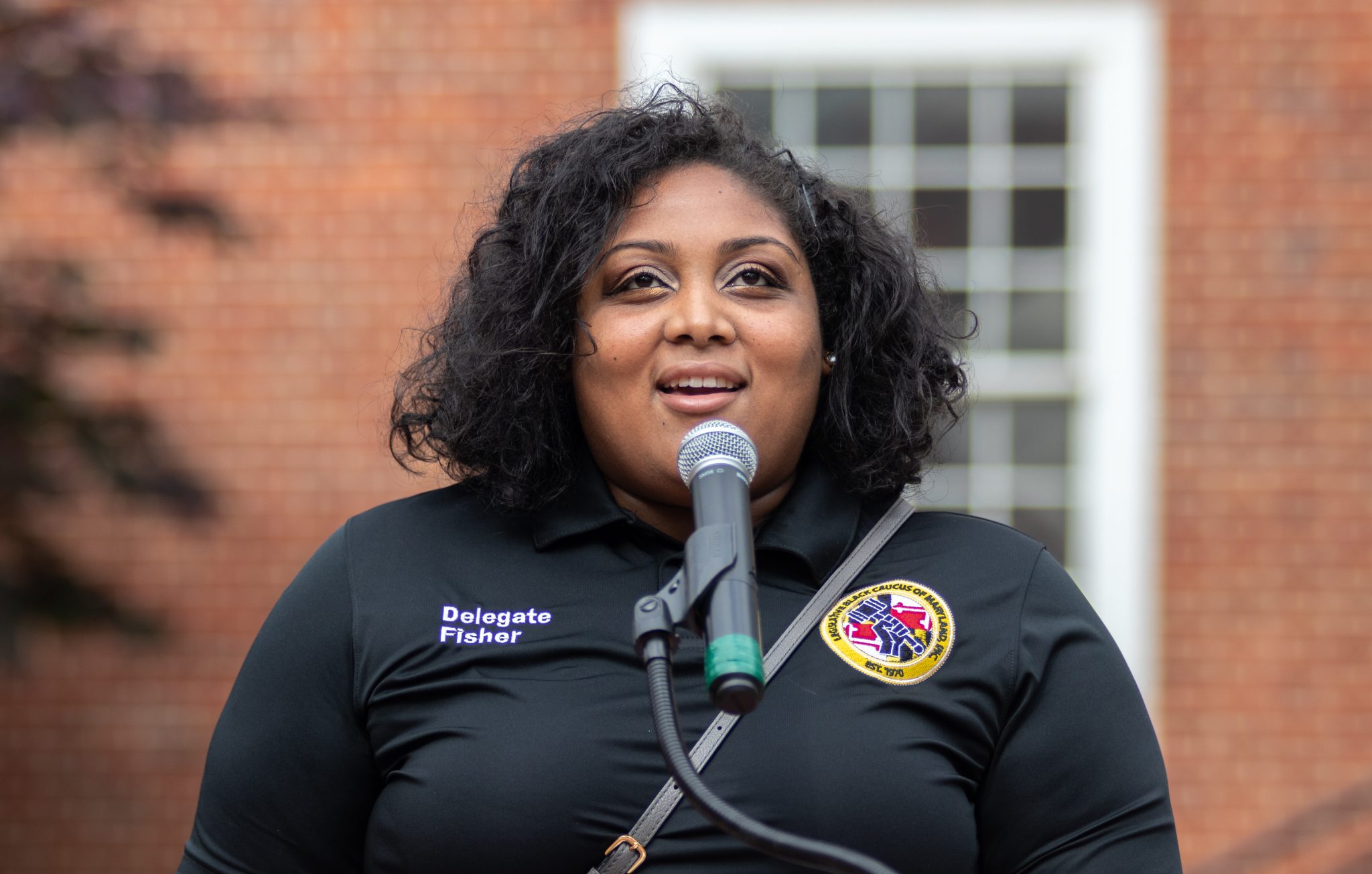While India’s state of Telangana is better known for its world-famous bronze castings or delicious Hyderabadi biryani, it is also a place of origin for two pioneering women in Maryland politics.
Former state delegates Aruna Miller and Wanika Fisher remembered their roots, which spanned generations, as they prepared for the next steps of their political journeys.
Wanika Fisher proudly exhibited her glistening Indian jewelry as she took her oath to become the first Asian American Prince George’s County Council member, while Fisher’s friend Aruna Miller placed her left hand on the Bhagavad Gita, a Hindu scripture, as she was sworn in to become the country’s first South Asian woman elected lieutenant governor in the U.S.
Together, Fisher and Miller hope to inspire a new generation of South Asian leaders to increase political involvement for the historically underrepresented community.
There are about 150,000 residents of South Asian descent in Maryland, roughly 2.4 percent of the population, according to the Maryland Department of Labor. But there are just two South Asians, Kumar Barve and Harry Bhandari, in the Maryland General Assembly’s Asian-American Pacific-Islander caucus out of 188 total seats.
Fisher, whose father is Nigerian Yoruba and great-great-grandparents are of South Asian Telugu descent, explained how this lack of representation in public office makes it difficult for younger South Asians, such as herself, to aspire to become future leaders.
“My biggest inspiration was different types of people like Hillary Clinton or other women I saw, but they didn’t look anything like me,” Fisher said. “I was worried that I was reaching for something that just didn’t make sense.”
This reality has forced many South Asians to look inward to understand why the community has been unable to sustain momentum toward more political power.
[Maryland bill would legalize medical aid in dying]
While India, the second most populous country in the world, is home to the second largest U.S. immigration group, Indians are considered one of the newest immigrant groups in the country, with their immigrant population growing in the U.S. since the late 20th century.
Many members of the South Asian community point to this as the driving factor for the lack of political representation.
Ronak Tallur, a sophomore public policy major at the University of Maryland, is a second generation immigrant whose parents immigrated to the United States from India in the late 1990s. He highlighted how difficulties in the visa process for Indian immigrants have also hindered potential growth.
“One of the problems for a long time had to just do with our immigration system and the fact that, historically, South Asians, in particular, haven’t really been in the U.S. for as many generations,” Tallur said. “We haven’t accrued that wealth or that status.”
Others emphasized how a lack of prominent politicians in the South Asian community has deterred some from even trying to enter the field in favor of other areas of study, such as engineering.
Junior international business major Muntaha Haq, whose parents are from Bangladesh, echoed Fisher’s sentiments about the lack of role models in politics for South Asians.
“There are very few role models I can look to, whether that be in political fields or fields of business, where I can see a strong South Asian example of success,” Haq said. “Whereas in other fields, I can name multiple off the bat.”
While Tallur and Haq agree it will require patience to address these systemic challenges, they highlighted how recent triumphs are reasons to be hopeful for the future.
[Maryland General Assembly considers package of bills to strengthen reproductive rights]
In addition to local victories, the past few years have been crucial for South Asians globally. Kamala Harris became the first Indian American to become vice president, while Rishi Sunak accomplished a similar feat in the United Kingdom as he became the nation’s 57th Prime Minister in October.
The increased representation on a global scale is a sign that the times are changing for South Asians across the world, Tallur said.
Tallur, who has worked on political campaigns in the past, argued that it has never been easier to run for public office in the United States as a South Asian.
“It’s easier now than it would have been even just five to ten years ago for Indian Americans or South Asians,” Tallur said.
Like Tallur, Fisher is also excited by the prospects of more South Asian representation in the future. But, she emphasized how the path to equity will be different than other minority groups, such as African Americans and Latinx, as there are just a handful of majority South Asian districts in the United States.
As a result, Fisher hopes prospective candidates remain in touch with issues affecting their communities, while embracing their South Asian culture.
“As long as you have your heart in the right place, and you want to serve your community … you can do it,” Fisher said.



